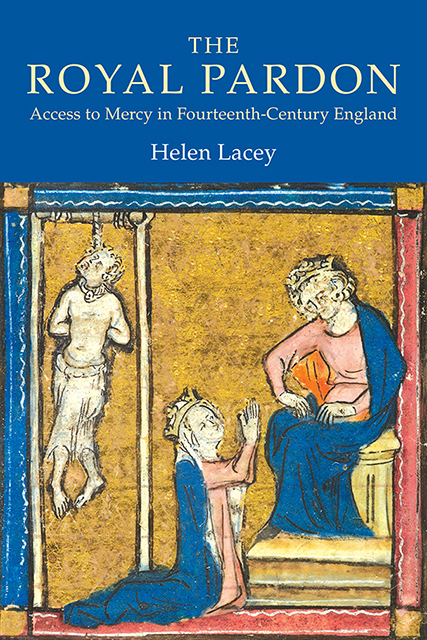Chapter Six - Procedures
Published online by Cambridge University Press: 07 March 2023
Summary
The individual pardons considered so far were obtained by the exercise of the king's grace in each separate case. The supplicant therefore relied on a royal justice or an influential patron to recommend a grant of mercy. In contrast, group pardons (political amnesties, military service pardons, and remissions of debts) and general pardons, were crucially different in that the initiative was taken by the Crown, usually with the advice of Parliament rather than an individual intercessor. The pardon was therefore issued in the form of a royal ordinance or statute, which informed the wider community of the range of offences that were to be pardoned, and the procedure they were to follow in order to obtain their own copy. These grants of mercy often had an immediate and important purpose for the recipients. Moreover they demonstrate that the royal pardon might occupy a central role in medieval political life.
By the outset of the fourteenth century the issuing of royal pardons had become a familiar process to members of the political community. The decision to bestow the king's mercy on an individual or particular group was often taken on the advice of Parliament, and, in certain cases, the act carried with it clear political significance. Throughout the century, the subject of pardon repeatedly found its way on to the parliamentary agenda in a variety of contexts. Clearly, not all of the pardons discussed in Parliament had a wider political significance. Standard legal cases from the lower courts were on occasion adjourned into Parliament, although the individuals involved were not necessarily members of the polity, or contesting matters of national importance. The presence of such cases on the parliamentary agenda demonstrated the judicial nature of these assemblies, and reinforced the status of Parliament as the highest court of appeal. Such pardons were often issued as a matter of course, the king simply endorsing a petition presented on behalf of the supplicant, whether it had been put before him in Parliament or in private audience, or simply forwarded by his royal justices. However, the wider import of such cases was usually limited, and as the status of Parliament evolved, the pressing business of the realm inevitably and increasingly sidelined them from the political agenda. Conversely, not all politically significant pardons were put forward to Parliament for consideration, although by at least the middle of the century most grants of mercy were being discussed by the Lords and shire representatives.
- Type
- Chapter
- Information
- Publisher: Boydell & BrewerPrint publication year: 2009



